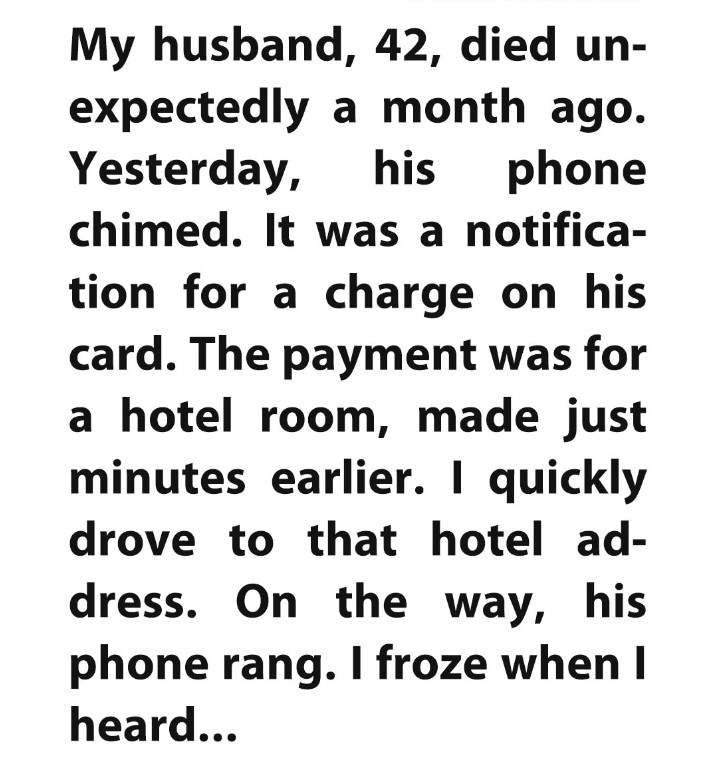It’s been thirty days since Daniel passed. Thirty days of silence, grief, and unanswered questions. His phone sat untouched on the kitchen counter—until yesterday, when it chimed.
A hotel charge had just hit his credit card. Confused and trembling, I grabbed the phone and drove to the address listed. On the way, a message appeared: “I’m already at the hotel, waiting for you.” My heart raced. Was someone using his identity? Or was this something else—something I couldn’t explain?
Then the phone rang.
A woman’s voice, soft and impatient: “Where are you, love? I’ve been waiting for an hour.” I froze. “Who are you?” I demanded. She hesitated. “Isn’t this Jake’s phone?”
But Daniel’s name wasn’t Jake.
The truth unraveled quickly. A 23-year-old named Jake had hacked into Daniel’s phone, stolen his personal data, and used his credit card to book the room. The voice on the other end was just another victim—unaware she’d been lured into a scam.
I contacted the authorities. They traced the breach, shut down the account, and helped me reclaim what was lost. But the emotional toll lingered. For a moment, I thought Daniel had reached out from beyond. For a moment, I believed the impossible.

Instead, I was reminded of something else: grief doesn’t just haunt—it gets hijacked. And sometimes, closure comes not from answers, but from reclaiming control.
